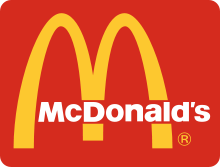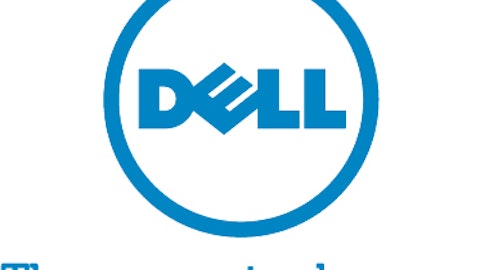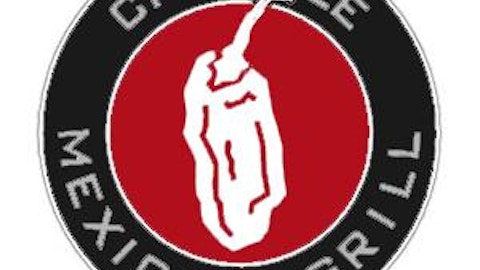
This statement got me thinking: what does a 23 year-old recent college grad know? The first thing that came to mind was fast food. Long nights, whether studying or spending time with friends, typically ended in a Baconator from The Wendy’s Co (NASDAQ:WEN) or a couple of double cheeseburgers from McDonald’s Corporation (NYSE:MCD). These fast food places were usually slammed with customers at all hours of the day. They have to be producing some nice profits right?
Let’s evaluate the big three burger chains, McDonald’s Corporation (NYSE:MCD), Burger King Worldwide Inc (NYSE:BKW), and Wendy’s and see if these companies meet the criteria of companies we would like to own.
Serving up value since 1940
It’s no secret that McDonald’s Corporation (NYSE:MCD) is top dog in this industry. The company owns or franchises 34,000 stores worldwide, making it one of the world’s most valuable and well known brands. In 2012, McDonald’s was able to increase revenue nearly 2%, but free cash flow decreased 11%. The decrease in fee cash flow was due primarily to mix of higher taxes, losses on foreign currency translations, and increased spending on capital expenditures.
At first glance McDonald’s Corporation (NYSE:MCD) appears to be slightly out of my price range (trading at multiple a little bit too expensive for my tastes). The company trades at 15.77 times 2014 earnings, with a price-to-sales of 3.59 and a price-to-book of 6.51. The price/book and price/sales seem to be inflated, but competitors in this industry sell at similar valuations so it is not necessarily a red flag.
What attracts me most to McDonald’s Corporation (NYSE:MCD) is the dividend. The company has been paying dividends for 36 consecutive years. In the last three years the company has had an average dividend growth rate of 11.9%. McDonald’s current dividend yield is 3.10% with a payout ratio of 55%. McDonalds is clearly dedicated to returning cash to shareholders and will continue to do so for the long term.
The King is fighting back
Burger King Worldwide Inc (NYSE:BKW) has recently completed a re-imaging program, where the company is trying to focus on expanding its premium offerings such as café style coffee drinks and even turkey burgers. This focus on premium menu items did not work well for Burger King as the company saw sales decrease 42% year-over-year for the first quarter of 2013.
However, this significant downturn in sales did not lead to an equivalent reduction in profits. Burger King Worldwide Inc (NYSE:BKW) was actually able to increase net income 150%. The company attributes the increase to its expense-cutting measures and menu diversity. This increase in earnings allowed Burger King to increase its dividend to $0.06 a share. The company also plans to repurchase around $200 million worth of stock.
From a valuation perspective Burger King Worldwide Inc (NYSE:BKW), similar to McDonald’s Corporation (NYSE:MCD), seems to be a bit pricey, currently trading at 52.90 times trailing twelve months earnings with a price-to-sales of 4.16 and a price-to-book of 6.01. However, with a Price/Earnings to Growth (PEG) ratio of just 1.53 Burger King appears to be priced just right considering its expected growth rate of 16.85%.
An issue Burger King Worldwide Inc (NYSE:BKW) needs to address in the near future is the company’s mounting debt. Burger King’s debt-to-equity ratio of 2.5 is more than to triple that of McDonald’s (0.8) and Wendy’s (0.7). This amount of debt may prove worrisome as Burger King will need to incur a large amount of capital expenditures to fund international growth. New CEO Daniel Schwartz, who takes over July 1, will have his work cut out for him as he strives to return revenue to previous levels while maintaining Burger King Worldwide Inc (NYSE:BKW)’s aggressive cost-cutting campaign.




